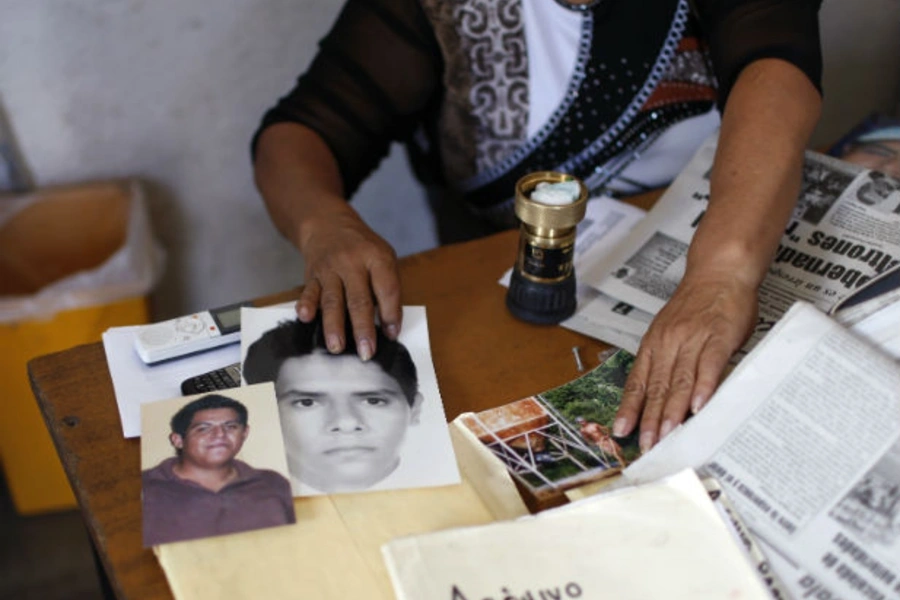More on:
An often overlooked problem with the so-called “war on drugs” mindset has been the effect on local populations: as military officials or militarized law enforcement officers fight narcotraffickers, they often play by rules of engagement that end up hurting the very citizens they are mandated to protect.
Human Rights Watch has just released a report on disappearances in Mexico over the last six years. The document, “Mexico’s Disappeared: The Enduring Cost of a Crisis Ignored,” painstakingly investigates some 250 cases. The local police are linked to the most disappearances (roughly 40 percent of those that Human Rights Watch investigated), but the report provides unsettling evidence that all branches of Mexico’s armed forces have been involved in disappearing people at some point. This includes Mexico’s navy—generally considered to be one of the least corrupt military branches—for 20 missing people in June / July 2011.
The report argues that it is not just the armed forces and police that contribute to the disappearances, but also the country’s judicial system. It reveals how prosecutors systematically delay or altogether avoid investigations, demanding at least seventy-two hours to pass before beginning the process and discouraging family members from filing claims when security forces are involved. For example, when Nitza Paola Alvarado Espinoza tried to report the Mexican army’s arbitrary detention (and eventual disappearance) of her cousin, Irene Rocío Alvarado Reyes, she was sent from one state prosecutors office to another, only to be finally told that there was no prosecutor available to speak with her.
These 250 cases are just those that Human Rights Watch has investigated. Last November a leaked document from the Ministry of the Interior and the Federal Prosecutor’s Office named over 25,000 people who had disappeared on President Calderón’s watch. Recent official revisions place the actual number closer to 27,000.
Current President Enrique Peña Nieto’s government has vowed a shift in the country’s security strategy, recently announcing a national program on crime prevention that will pour some $9 billion into programs targeting drug addiction, as well as school and domestic violence. Though many critique the lack of specifics, the rhetoric has definitely shifted. But the government will need to do more to bring safety and security to Mexico’s streets than just change the way it talks about crime. It will have to make sure that law enforcement officials and citizens alike understand that the ends don’t justify the means, and that disappearances cannot continue if Mexico hopes to turn the security corner and establish a sustainable democratic rule of law.
More on:
 Online Store
Online Store

